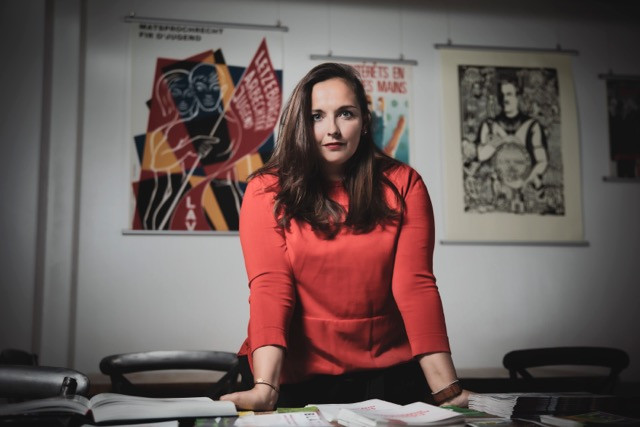In her first May Day speech as president of the OGBL--the largest trades union grouping in the grand duchy--Nora Back said the state should recover the emergency aid loans it has made to businesses during the covid-19 crisis as soon as the situation allows for it. “The state is not a cash cow,” she told her members in a video broadcast on Friday morning to mark International Workers’ Day as reported by our sister publication Paperjam (in French).
The previous day, in an interview with Delano, Back had said that the government must invest in public projects after confinement is lifted. “It is important that the exit strategy does not repeat the mistakes of the financial crisis of 2008 and 2009,” Back said. She does not want to see the sort of austerity policy that she says had bad consequences for the whole of Europe. “Something must be done for the people, and we have the means to do it.”
Back has no beef with the confinement measures introduced by the government on 16 March. “We supported that strategy, because we are not experts in health who can decide when deconfinement should happen,” she said. But the crisis has hit certain sectors of the economy, and members of the OGBL, particularly hard. The Horeca hospitality sector and small businesses are the most obvious victims, Back says. But people active in the artisanal and personal services sector like hairdressers and photographers have also suffered. “And, in the cleaning sector many technicians employed by private households had their work cancelled and are not being paid,” she says.
Indeed, Back argues that the crisis has highlighted what sort of workers are most valuable to society. “It is often people in low-paid jobs, like transport, security guards, retail, food supply. And it is often women doing work that is not recognised by society. There is a clear need to increase salaries in those sectors,” she says.
Industrial workers in companies that rely on import and export have also had to be placed on short-term working schemes. “Even ArcelorMittal closed its doors for some time,” says Back, whose union represents the majority of workers in the steel industry.
The OGBL has supported its members by maintaining staff on its helplines and offering advice on employment rights. The union has also been in permanent contact with employers and individual ministers like labour minister Dan Kersch and economy minister Franz Fayot--both of whom are from the socialist LSAP party. Like her counterpart Patrick Dury at the LCGB, Back wants a full return of the tripartite discussions between government, employers and unions to help steer the exit strategy and economic policy beyond the end of the coronavirus crisis.
Unhappy with end of parental leave
“We are happy with many of the political decisions, such as the special parental leave and the short-time unemployment schemes, that were taken because we demanded them and applied pressure,” Back says. However, just before she spoke to Delano, education minister Claude Meisch (DP) had announced that, with all schools and childcare facilities reopening by 25 May, the government would not extend the special parental leave beyond that date. “We will have something to say about this,” said a clearly upset Back. “We don’t think we should suspend school until the summer holidays. It is important that children return to school, especially those who are in families in difficult circumstances.” But she said her union did not see how parents who both work can cope with the one week on, one week off schedule being introduced to maintain social distancing among pupils. “That is just chaotic,” Back said.
On the other hand, the OGBL supported the reopening on 20 April of building sites, even if the notice they received was rather short. “We were taken by surprise, so it was a bit hectic,” she says. But teams from the union visited construction sites to ensure the return to work went smoothly, and Back says that companies in the sector showed “big engagement” and that workers were motivated and respectful of safety and social distancing rules.
Back acknowledges that the longer term deconfinement period is throwing up mixed feelings. “It is a unique social phenomenon to be confined for such a long period of time. Everyone has their own fears.” She says some of the union’s members can’t understand, for instance, the mixed message that they are being told to return to work where they will interact with colleagues, but they still can’t officially visit family who are not part of their household. “We need better communication to get everyone on board. It is psychological. Members will be happy to return to a bit of normality, because they know the longer confinement lasts the more companies will not survive and the more unemployed we will have.”
Looking beyond deconfinement, one of the most important lessons that can be learned from the crisis, says Back, is that it has shown the importance of having a state that supports public services and has a healthy social security system. “It is time to cease attacks on that model.”
